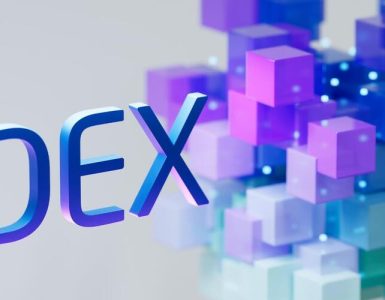Decentralized finance, or DeFi, has been making waves in the financial world for its potential to revolutionize traditional financial systems. However, as with any new technology, questions arise regarding its implications on taxation. In this article, we’ll explore the basics of Decentralized Finance, its potential impact on taxes, and what investors need to know to stay compliant.
What is Decentralized Finance (DeFi)?
Decentralized finance, also known as open finance, is a system of financial applications built on top of blockchain technology. It allows for peer-to-peer transactions without intermediaries like banks, brokerages, or exchanges. DeFi relies on smart contracts to automate and enforce the terms of financial agreements, such as loans, insurance, and trading.
The Tax Implications of Decentralized Finance
While Decentralized Finance offers many advantages, its impact on taxes is still uncertain. The decentralized nature of DeFi makes it difficult for governments to track transactions, making it a potential haven for tax evasion. In addition, the tax laws surrounding DeFi are still in their early stages of development, leaving many investors unsure about their obligations.
DeFi and Capital Gains Tax
One of the most significant tax implications of Decentralized Finance is capital gains tax. Just like with traditional investments, investors in DeFi must pay taxes on their gains. However, calculating capital gains in DeFi can be challenging due to the complex nature of its transactions. Investors must keep detailed records of their transactions and calculate their gains and losses accurately to stay compliant.
DeFi and Income Tax
Another area of concern for investors in Decentralized Finance is income tax. Any earnings from DeFi transactions are subject to income tax, just like traditional investments. However, the decentralized nature of DeFi makes it difficult for tax authorities to track these transactions, leading to potential tax evasion.
DeFi and Airdrops
Airdrops, or free tokens or coins distributed to DeFi users, are another area of uncertainty when it comes to taxes. While airdrops are not considered income when received, they are subject to capital gains tax when sold or exchanged for other cryptocurrencies or fiat currency.
Staying Compliant with Decentralized Finance Taxes
To stay compliant with DeFi taxes, investors must keep detailed records of all their transactions, including the date, type of transaction, and value in both cryptocurrency and fiat currency. Investors should also work with tax professionals who have experience in cryptocurrency and DeFi taxes to ensure they’re meeting their obligations.
The Advantages and Risks of DeFi
DeFi offers several advantages over traditional finance, including lower fees, greater accessibility, and more significant control over financial assets. DeFi also allows for faster and more transparent transactions, reducing the need for intermediaries and increasing efficiency. However, DeFi also presents risks, including the potential for hacks, scams, and price volatility.
The Role of Smart Contracts in DeFi
Smart contracts are at the heart of DeFi, allowing for automated and enforceable financial agreements. Smart contracts are self-executing contracts with the terms of the agreement directly written into code. They’re stored on a blockchain, making them immutable and transparent. This technology is used for various DeFi applications, such as lending, borrowing, and trading.
Tax Reporting for Decentralized Finance Transactions
Investors in DeFi must report their transactions for tax purposes accurately. However, because DeFi transactions can be complex and challenging to track, reporting can be challenging. Some DeFi platforms provide built-in tax reporting features, but investors must still understand their tax obligations and ensure they’re accurately reporting their transactions.
The Importance of Working with Experienced Tax Professionals
Working with experienced tax professionals is crucial for investors in DeFi. Tax professionals with expertise in cryptocurrency and DeFi taxes can help investors navigate the complex tax landscape and ensure they’re meeting their obligations. They can also provide guidance on strategies to minimize tax liabilities and avoid potential legal and financial consequences.
The Future of Decentralized Finance and Taxes
The future of DeFi and taxes is still uncertain, as governments worldwide grapple with the implications of this emerging technology. As DeFi continues to grow and mature, regulations and tax laws may evolve, and investors must stay informed and adapt to these changes. However, with careful planning and compliance, investors can enjoy the benefits of DeFi while mitigating potential risks.
Conclusion
Decentralized finance has the potential to transform traditional finance, but it also presents new challenges for tax compliance. Investors must be aware of the tax implications of DeFi and work with experienced tax professionals to ensure they’re meeting their obligations. By staying informed, compliant, and vigilant, investors can safely and responsibly participate in the exciting world of DeFi.





